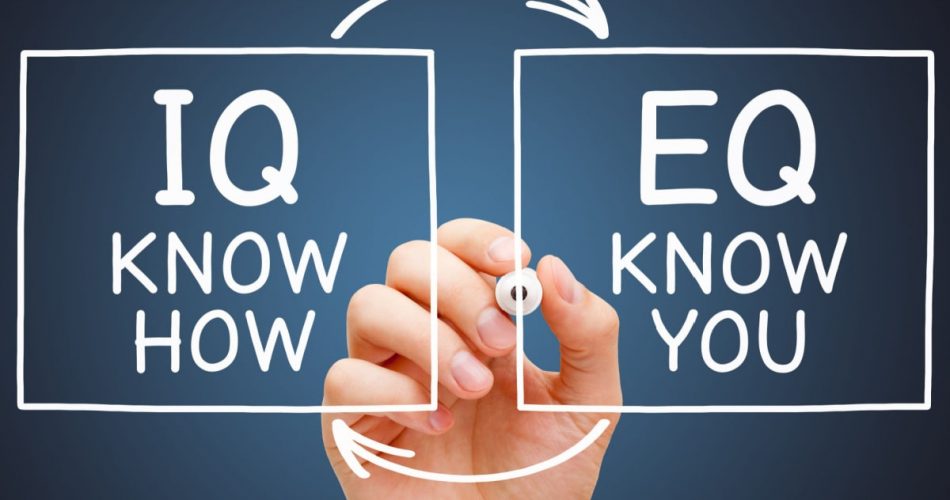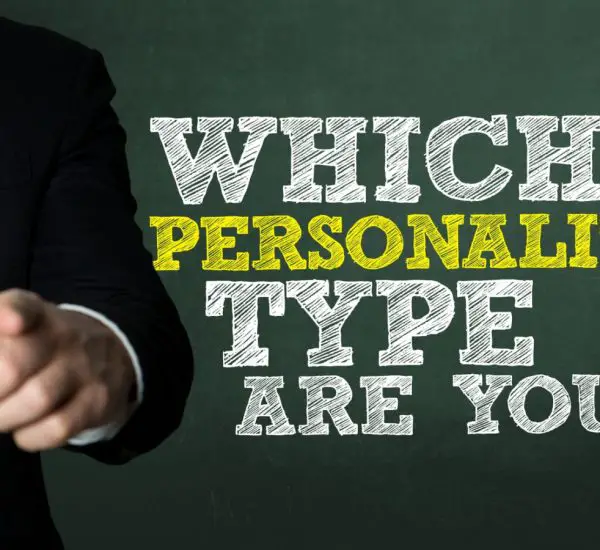Emotional intelligence shows how well you understand your emotions and those of others around you. You can use this information to handle situations.
Going into a little detail, what exactly is emotional intelligence? Emotional Quotient (EQ) is another name for emotional intelligence. In simple words, it means to know your state of mind and control your emotions. But, it does not only apply to a single person. To have EQ means to understand people around you as well. Using the know-how of your own state of mind and that of others for the best results is EQ.
You might be wondering, what is the importance of emotional intelligence? After all, shouldn’t IQ be enough for a person? Why EQ is so important? IQ measures the brain’s ability to solve things. But, EQ lets you interact with people around you better. So, the answer is, IQ is important, but EQ will help you lead a better social life.
5 Characteristics of Emotional Intelligence
Daniel Goleman is an American psychologist who spread the concept of EQ. According to him, it has five key elements. So, what are the 5 characteristics of emotional intelligence? Goleman classifies them as follows.
1- Self-awareness
It is a measure of knowing your mental state. If you know what you are feeling and can use that to your benefit, then you’re self-aware. Also, you don’t let emotions rule you and are rational. Self-aware people know themselves the best. They realize their strengths and weaknesses and make the best use of them. Here is how to develop self-awareness.
2- Self-regulation
It is the act of keeping your emotions in check. It is the 2nd step in emotional intelligence. You do not let yourself be impulsive or reckless. Also, you think before you speak or act. In other words, you control your emotions, they don’t control you. Here is how to develop self-regulation.
3- Motivation
It is another part of the 5 characteristics of emotional intelligence. People with high EQs are generally much more motivated. They look at long-term results and are very productive also. Here is how to stay motivated.
4- Empathy
It is the most important of the 5 characteristics of emotional intelligence. It is the ability to relate to what other people are feeling. Empathetic people are good listeners and manage relationships well. Also, they are not quick to judge and always honest to themselves. Here is how to be empathetic.
5- Social skills
It comes with the package if you have high emotional intelligence. People with great social skills are always liked better. Also, they make good team members. They are good at communicating and good listeners as well.
These are the five components of it. They help describe what exactly is emotional intelligence. In other words, these five components can tell if you’re emotionally intelligent. You can use these five elements as a personal emotional intelligence test to gauge someone.
So, if you want to know if you’re emotionally intelligent, you look for these five components. They can be a measure of someone’s EQ. Here are some effective communication skills you can learn and turn your life around.
How to Develop Emotional Intelligence?
Learning about the importance of EQ may lead you to an obvious next question. How to develop emotional intelligence? Or, Can emotional intelligence be taught? There is good news. Although some people may be born with EQ, those who are not should not worry. It is a set of skills that you can learn through a little hard work. And it will not be a waste. To develop emotional intelligence means to interact more ably with others. In other words, it boosts your problem-solving ability. It is a need when you want to be a good leader. A leader can connect to his followers and understand their situation better if he has a good EQ.
What are the Qualities of Emotional Intelligence?
You can develop emotional intelligence skills keeping the following points in mind.
1- Take a step back
Noting your reaction to things can help you develop emotional intelligence. Take a step back before judging and understand the situation. Also, try to put yourself in others’ shoes. It will help you communicate better and help you control your impulses.
2- Humility
It brings humility to your behaviour. But, keep in mind that humility is not a lack of confidence. It does not mean that you do not understand your achievements. But, it means that you recognize them well enough to be humble. Confidence should come from within and not need praise from others
3- Self-evaluation:
To develop emotional intelligence skills, you need to be self-evaluating. You need to ask yourself things like, was my reaction necessary? Could I have made this interaction in a better way? Also, you have to accept that you may not be perfect. Realizing your mistakes and working on them will pay off in the long run.
4- Stress:
Stress is a good way to check your emotional intelligence skills. Your reaction to situations where everything does not work out your way is essential. Ask yourself, do you become upset in such cases? Staying calm and composed in challenging cases is a good emotional intelligence example. Also, it lets you stay in control of difficult situations.
5- Accepting mistakes:
Realize your mistake. Accepting a fault and trying to make it right is a good emotional intelligence example. Not only does this raise your emotional intelligence, but it also helps your social skill. People always appreciate honesty and real attempts at correction.
6- Consequences:
One vital feature of emotional intelligence is empathy. Thinking of consequences for you before acting is good. But, if you know how your actions will affect others, it is a good emotional intelligence skill. How your actions would affect the other from their view is another example.
These qualities of emotional intelligence help you grow. Also, they help you lead a better social life. You can get others and be sensitive to their problems. Not only is it rewarding for you, but it also makes you a valuable friend to everyone. These qualities of emotional intelligence are not satisfying in personal life only. Many organizations now use emotional intelligence tests before hiring. A good EQ makes you a team player and an asset to any company.
Is it enough to just know what the parameters for emotional intelligence are? How to develop emotional intelligence now that you know what the five components are? The answer is simple.
The following points will help you improve in each element of emotional intelligence. Also, it improves your life.
1- Self-awareness
You can take these easy steps to develop self-awareness as an emotional intelligence skill.
- Maintaining a diary helps you improve self-awareness. All you need to do is spend a few minutes on it daily. Also, writing down your own feelings about events can enhance your awareness.
- Taking a step back before you react always helps. Whenever you feel angry or upset, slow down before reacting. It will give you control over your emotions. Also, it will stop you from making impulsive decisions.
2- Self-regulation
Self-regulating is the next step in developing emotional intelligence skills. You can do it with these steps.
- You need a bit of self-test. Knowing your own moral compass is necessary for this skill. You should know what moral values you stand for. Not only does it clear your head, but it also lets you make quick decisions.
- Your response to a stressful situation should be calm. Also, you should seem calm no matter how hard things get. You may find controlled breathing skills useful in such cases. This will help you be rational under stress.
3- Empathy
The next step with emotional intelligence skills is to bring others into the circle. Before empathy, the elements concern you. But, this involves other people’s emotions in your decisions.
- Put yourself in other people’s shoes. It is possible that you have never been in a situation like the other person. In that case, you can try to relate to the emotion that others are feeling.
- Try and be a good listener.
- Always try to be kind and thoughtful. Also, do not neglect any emotion if you recognize it.
- Try speaking in a soft tone and show your concern. It will help you with your communication skills as well.
4- Motivation
Motivation is the inner urge to fulfil a task. In other words, you are driven and do not need advice. These points can help you develop motivation as an emotional intelligence skill.
- Try to recall the reason you started the task.
- You should always set achievable and realistic goals. If your goals seem difficult to achieve, start with something simple.
- Try and look at the bright side. Even if you get a minor setback, try to look at, at least one positive.
5- Social skills
This can be called the culmination of all emotional intelligence skills. Social skills are the final step to develop emotional intelligence. Also, it means managing situations to be beneficial to everyone.
- Develop your communication skills. Not only does it make you a good listener, but it also explains all issues. Good communication skills will always help you avoid misunderstandings.
- Try and deliver your concerns as positive feedback.
- If you’re stuck in a conflict, take everything into account. In other words, try and look at all point of views.
- Always be cooperative with people.
These points help you increase the qualities of emotional intelligence. Also, they can be helpful to you at your job, home, friend circle, and education. In other words, EQ is universal and applied in all walks of life.
Generally, only one type of intelligence (IQ) is known. After reading this article, you may be asking yourself.
What is better EQ or IQ?
The question has been a subject of much debate. Some people side with EQ and others with IQ. But, the truth is, both of them can be important. E.g. IQ will help you earn an advanced degree from college. But, emotional intelligence is what will help you form lasting friendships. You need EQ to get and empathise with people around you. Not only does it help you form good relations, but it also leads to emotional fulfilment.
Also, it is not only others that you understand when you have a high EQ. You learn your own feelings about different things. Getting why you act a certain way, in any case, is important. Also, you can mould yourself to be a better person with a high EQ.
After understanding how to develop emotional intelligence. You may be surprised to know that it is not a mental idea. You can measure EQ same as IQ.
Emotional Intelligence Test
There are four types of emotional intelligence tests available. All these tests measure the EQ but based on different elements. Many companies use these tests to check the best hiring of employees. Let’s get into what are the four types of emotional intelligence when it comes to tests.
Abilities based
This type of test measures EQ in the same way as IQ. In a test for IQ, you have to solve mental problems. More often than not, related to maths and intelligence. Ability based emotional intelligence test measures EQ the same way. But, instead of mental issues, you have to solve emotional issues. The MSCEIT (Mayer-Salovey-Caruso emotional intelligence test) is one such example.
Trait based
These tests are based on the premise that EQ is the same as a character attribute. Like sensing or intuition in personality tests. It treats EQ as a trait of your personality rather than your brain. EQ-I 2.0 is a great trait based emotional intelligence test.
Behaviour based
The assumption behind such tests is that EQ is a skill. Sometimes an individual shows that skill, and sometimes they do not. Such tests will judge how often you display emotional intelligence skills. Genos EI is a test designed for behaviour based tests.
Competence based
These tests are designed to measure EQ of different people according to their roles. As an example, you expect from a company’s general manager to display more EQ than a junior manager. Likewise, a low level employee may not need EQ scores on par with the manager. The Emotional Competency Inventory (ECI) is a test made for it.
In conclusion, emotional intelligence is as important as IQ.
It is not a trait that you are born with. We have covered steps that guide you on how to develop emotional intelligence in steps. Different emotional intelligence skills were stressed and explained. In addition, we saw four types of emotional intelligence. And the kind of tests used to find these.
Emotional intelligence will help you better yourself socially in every walk of life. It may be profession, personal, or academic. It is critical for people in leader roles, as well. Also, it is not just a theory. You can get quantifiable results of EQ. Also, steps can be taken to improve your EQ just like the IQ.




